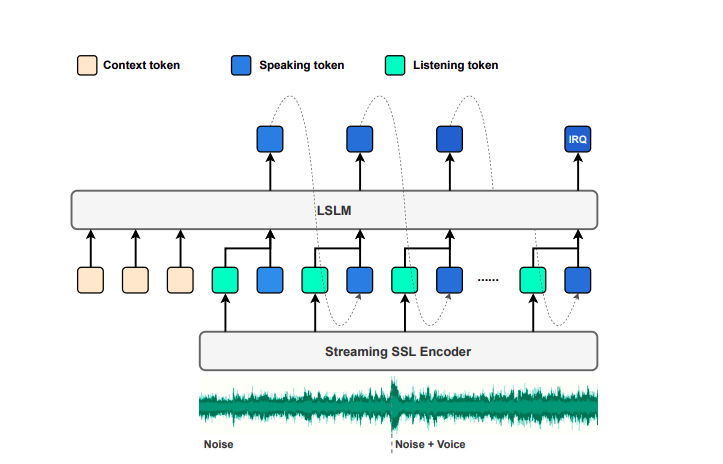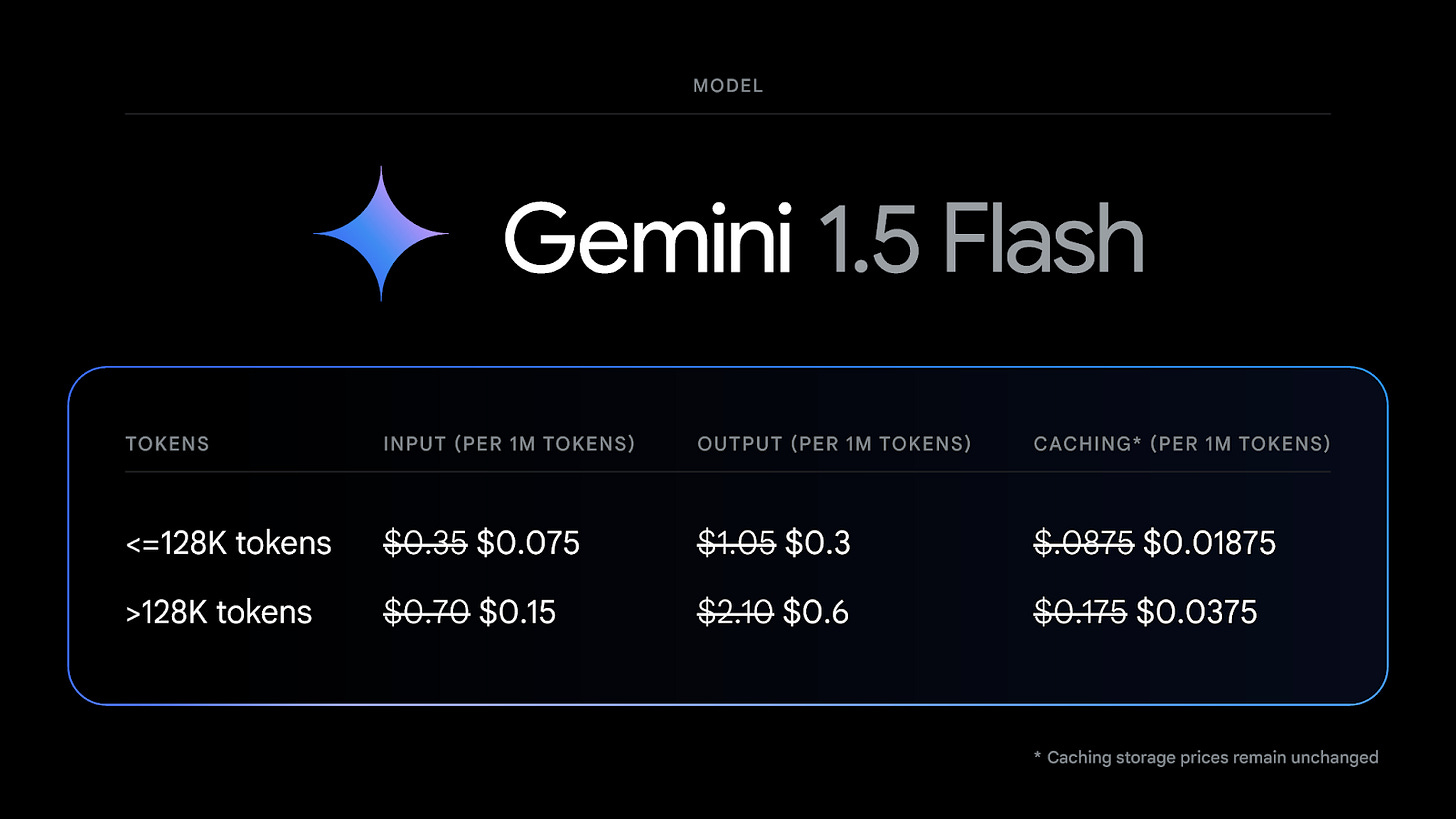Elon Musk Sues OpenAI Again
Plus: New AI model sparks rumors about OpenAI’s Q*, New AI model can listen while speaking, Gemini 1.5 Flash cuts usage fees by 78%, and more.
Hello Engineering Leaders and AI Enthusiasts!
This newsletter brings you the latest AI updates in just 4 minutes! Dive in for a quick summary of everything important that happened in AI over the last week.
And a huge shoutout to our amazing readers. We appreciate you😊
In today’s edition:
🚨 Elon Musk sues OpenAI again
🔍 New AI model sparks rumors about OpenAI’s Q*
🗣️ New AI model can listen while speaking
⚡ Gemini 1.5 Flash cuts usage fees by 78%
🛡️ OpenAI releases GPT-4o System Card, revealing safety measures
💻 SingularityNet’s supercomputer network: A step closer to AGI
📚 Knowledge Nugget: This is the beginning of the end of the generative AI boom by
Let’s go!
Elon Musk sues OpenAI again
Elon Musk has filed a new lawsuit against OpenAI and its CEO, Sam Altman. Musk alleges that Altman and other OpenAI co-founders manipulated him into co-founding the company and then betrayed him by turning OpenAI from a non-profit into a largely for-profit enterprise. Musk claims this was a "textbook tale of altruism versus greed" and a "deceit of Shakespearean proportions."
OpenAI denies Musk's allegations, pointing to previous statements showing Musk supported OpenAI's shift to a for-profit model. This is the second time Musk has sued OpenAI after withdrawing a similar lawsuit earlier this year. The new complaint includes additional allegations that OpenAI broke federal racketeering laws.
Why does it matter?
The results of this lawsuit are still unclear, but they may shed light on internal matters at OpenAI as it expands, such as leadership changes, tech advancements, new operations, and future developments.
New AI model sparks rumors about OpenAI’s Q*
A mysterious new AI model has appeared in the LMSYS Chatbot Arena, sparking rumors that it could be OpenAI's highly anticipated Q* AI breakthrough or its evolution, codenamed 'Strawberry.'
Testers report that this "anonymous-chatbot" displays more advanced reasoning capabilities than the current state-of-the-art GPT-4o model. To add to the speculation, OpenAI CEO Sam Altman has tweeted a picture of a strawberry, which is believed to be the codename for OpenAI's secret new AI model.
Why does it matter?
If this mystery model is indeed Q*, it could represent another significant leap forward in AI capabilities as OpenAI's competitors like Anthropic and Meta start to catch up to GPT-4o. This could be a massive paradigm shift that could significantly reshape the landscape of AI.
New AI model can listen while speaking
Researchers have developed a new Listening-While-Speaking Language Model (LSLM) that can listen and speak simultaneously. This allows for more natural and responsive conversations with AI systems. The LSLM uses a token-based decoder-only text-to-speech model for speech generation and a streaming self-supervised learning encoder for real-time audio input.
This enables the model to detect turn-taking and respond to interruptions, a key feature of natural conversation. In addition, the LSLM has demonstrated robustness to noise and sensitivity to diverse instructions in experiments.
Why does it matter?
While OpenAI’s advanced voice mode for ChatGPT pushes us towards realistic AI conversations, LSLM takes that to the next level, where it could revolutionize human-AI interactions, making conversations with machines feel natural and responsive.
Gemini 1.5 Flash cuts usage fees by 78%
Google has announced significant updates and improvements to its Gemini API and Google AI Studio. The biggest news is a significant reduction in the usage fees for Gemini 1.5 Flash. The input token costs have decreased by 78% to $0.075 per 1 million tokens, and the output token costs have decreased by 71% to $0.3 per 1 million.
This makes Gemini 1.5 Flash a popular and affordable summarization and multi-modal understanding model. Google has also completed the Gemini 1.5 Flash tuning rollout, allowing developers to customize the base model and improve its performance.
Why does it matter?
The extended language support, model tuning options, and improvements to the Gemini API will enable more developers and researchers to build innovative AI-powered products and services using advanced NLP capabilities.
OpenAI releases GPT-4o System Card, revealing safety measures
OpenAI has released the GPT-4o System Card, a document that details the safety measures and risk evaluations conducted before the launch of its latest AI model, GPT-4o. The company used external security experts to identify potential risks in the model, such as the possibility of it creating unauthorized voice cloning, erotic and violent content, or replicating copyrighted audio.
The evaluations covered four risk categories: cybersecurity, CBRN (chemical, biological, radiological, nuclear), persuasion, and model autonomy. While the overall risk was rated as "medium," the highest risk was in the persuasion category, where the model's writing samples showed the potential to sway readers' opinions.
Why does it matter?
There have been reports suggesting that OpenAI may have rushed the testing and release of GPT-4o. While evaluations like the GPT-4o System Card are standard, OpenAI’s release of the report shows its transparency efforts, aiming to build and maintain trust among users.
SingularityNet’s supercomputer network: A step closer to AGI
SingularityNET is launching a network of powerful supercomputers to accelerate the development of AGI. The first of these supercomputers is expected to come online in Sep 2024. The network will use cutting-edge hardware like Nvidia GPUs and AMD processors to create a "multi-level cognitive computing network" for hosting and training complex AGI systems.
The company uses an open-source software framework called OpenCog Hyperon to manage the distributed computing power. Users will access the network through a tokenized system, allowing them to contribute data and test AGI concepts.
Why does it matter?
Major AI companies such as OpenAI, Anthropic, and Google currently dominate the race to AGI development. However, SingularityNET's novel decentralized approach could disrupt this, democratizing AI research for a broader range of contributors and innovators.
Enjoying the latest AI updates?
Refer your pals to subscribe to our newsletter and get exclusive access to 400+ game-changing AI tools.
When you use the referral link above or the “Share” button on any post, you'll get the credit for any new subscribers. All you need to do is send the link via text or email or share it on social media with friends.
Knowledge Nugget: This is the beginning of the end of the generative AI boom
In this interesting post,
argues that the generative AI boom is ending. It cites several indicators, such as Nvidia's declining stock value, executive departures at OpenAI, lawsuits against AI companies, and disappointing results from companies investing in enterprise-level generative AI.The author believes the hype around generative AI is fading, as the technology has not lived up to the lofty promises about its capabilities. Its commercial viability and long-term prospects are being questioned. The author suggests that technology is shrinking to more niche use cases rather than the predicted transformative impact.
Why does it matter?
If these trends continue, it could mean a pullback in investment and enthusiasm for generative AI. This shift could impact the AI community by leading to more scrutiny, a recalibration of expectations, and a focus on practical applications rather than unbridled optimism.
What Else Is Happening❗
📊Reddit is testing AI-powered search result pages that provide summaries and recommendations to help users "dig deep" into content and discover new communities.
🎥According to leaked documents, Nvidia has been scraping video content from sources like YouTube and Netflix to train its AI models for its upcoming Cosmos project.
✍️Automattic has launched a new tool called "Write Brief with AI." This helps WordPress bloggers write concisely and improve the readability of their content.
💡YouTube is testing a new feature that allows creators to use Google's Gemini AI to brainstorm video ideas, titles, and thumbnails.
🛡️Anthropic is expanding its safety bug bounty program to focus on finding flaws in its AI safeguarding systems. The company is offering bounty rewards of up to $15,000.
🖼️OpenAI allows free ChatGPT users to generate up to two images per day using its DALL-E 3 model. This was previously available only to ChatGPT Plus subscribers.
🏓 Google Researchers developed a robot to play competitive table tennis at an amateur human level. It can also adapt its game to play vs. unseen human opponents.
🧮Alibaba has released a new LLM called Qwen2-Math that scored 84% on the MATH Benchmark, surpassing OpenAI's GPT-4o and other leading math-focused AI models.
🔍Audible is testing an AI-powered search feature called "Maven" that provides personalized audiobook recommendations based on users' specific requests.
📓Google Meet is rolling out a new AI-powered feature, "Take notes for me," which can automatically take notes during video calls,boosting productivity and efficiency.
New to the newsletter?
The AI Edge keeps engineering leaders & AI enthusiasts like you on the cutting edge of AI. From machine learning to ChatGPT to generative AI and large language models, we break down the latest AI developments and how you can apply them in your work.
Thanks for reading, and see you next week! 😊





